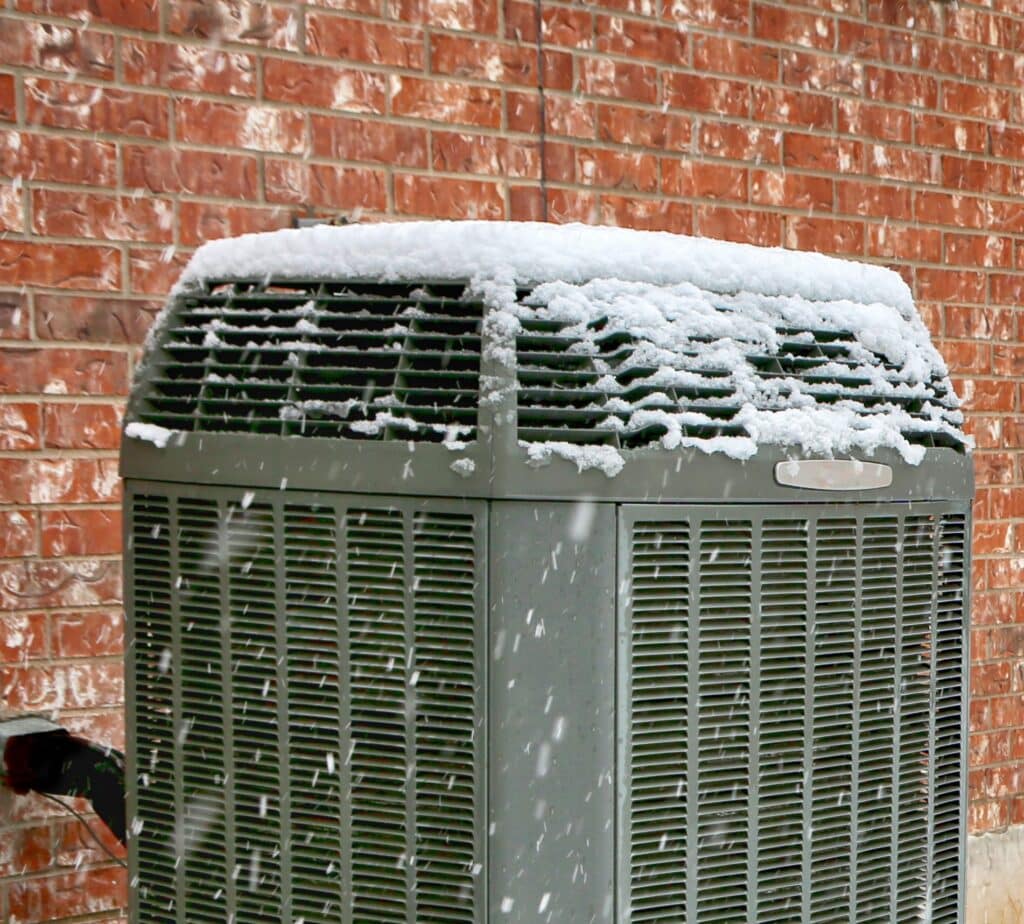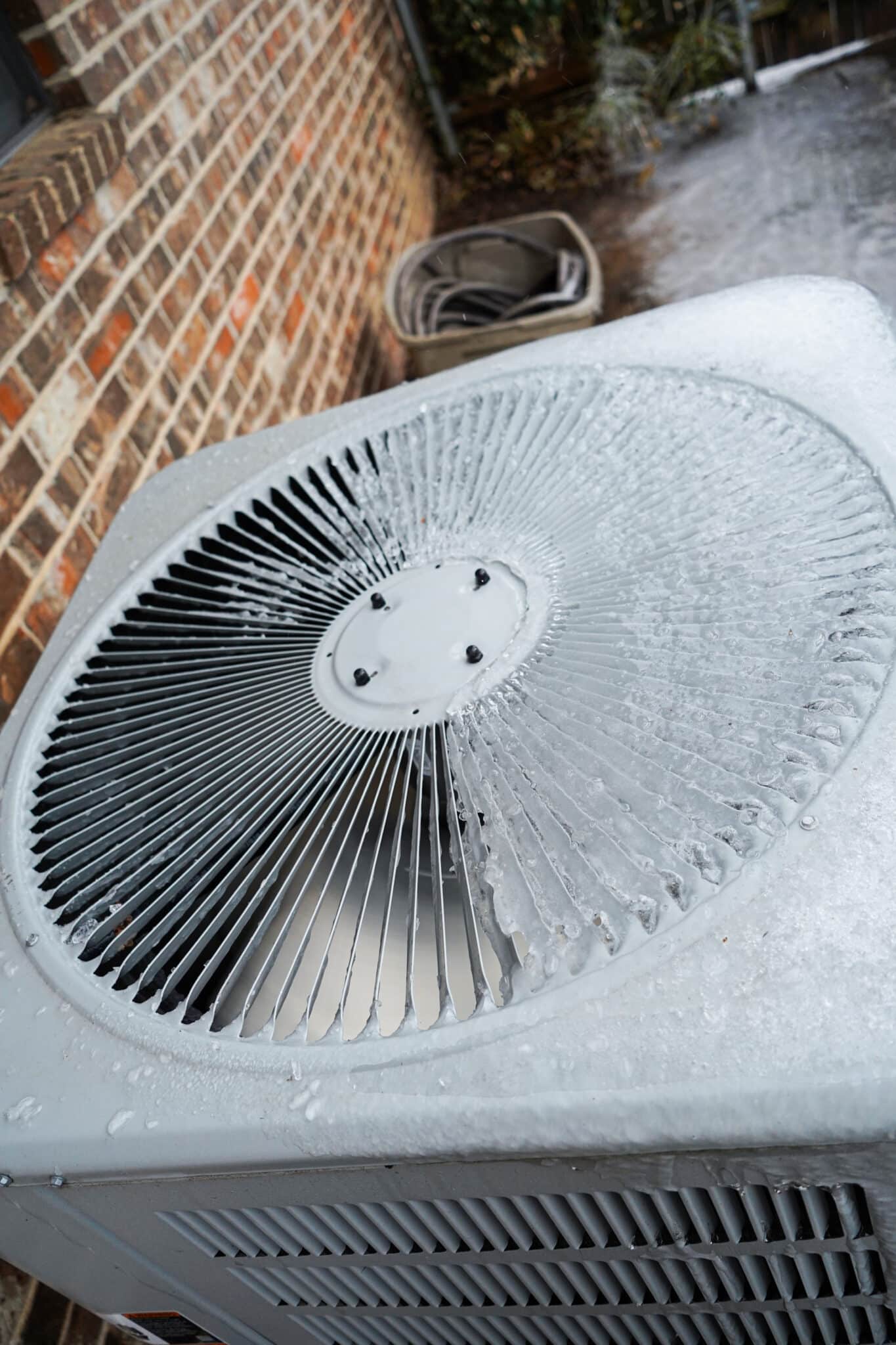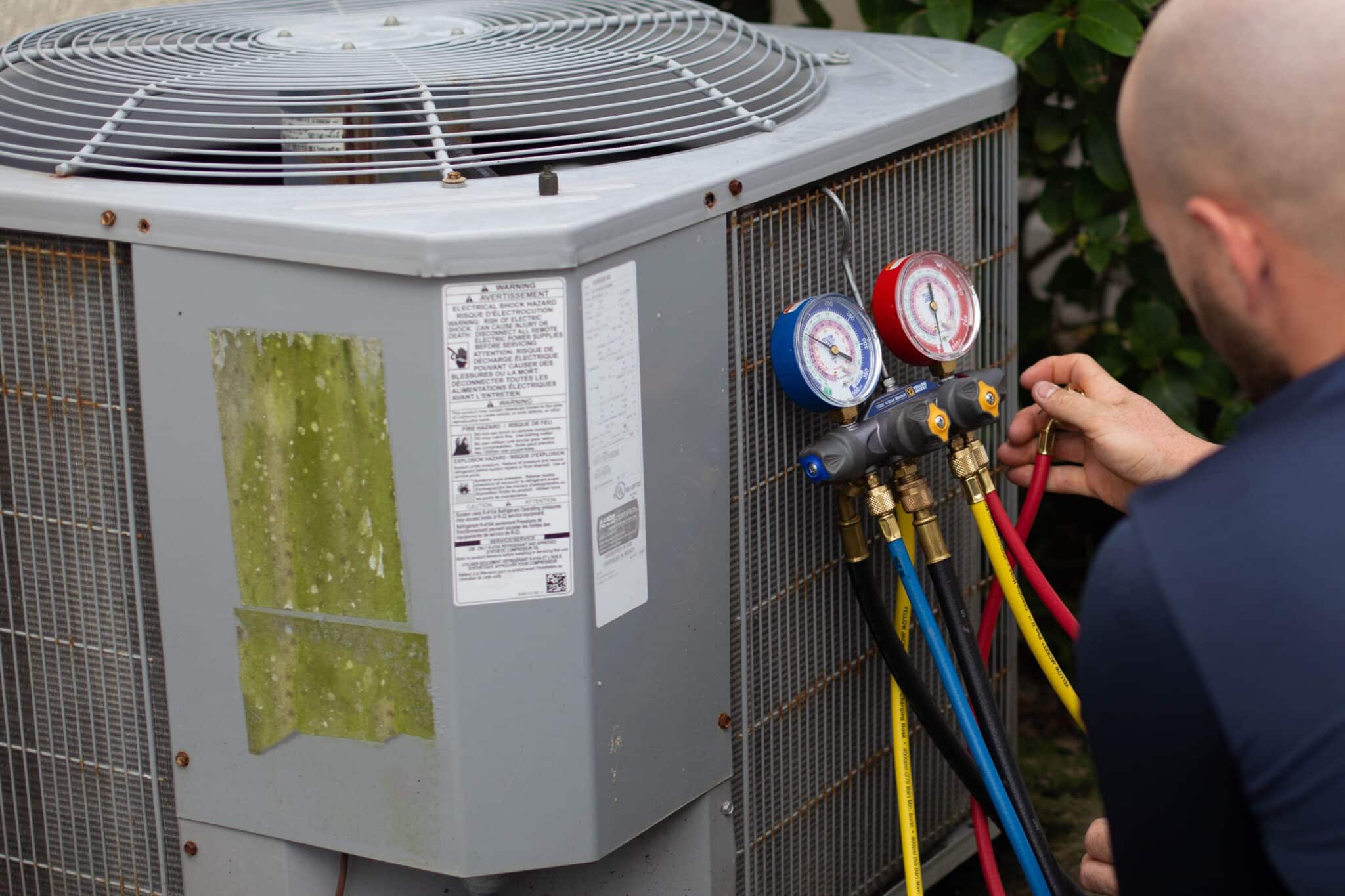
How Texas Winter Winds Affect Outdoor HVAC Units
Texas winters may not bring heavy snow, but they come with their own set of challenges for outdoor HVAC units. In North Richland Hills, December often brings sharp temperature drops and relentless winds that can wreak havoc on these essential systems. Without proper care, the effects of debris, freezing rain, and constant exposure to the elements can compromise efficiency and lead to costly repairs.
Unlike other regions, Texas weather fluctuates dramatically, creating a perfect storm of stress for outdoor HVAC units. These systems are forced to work harder to maintain indoor comfort, all while battling external conditions that can strain components or cause sudden failures. For homeowners, the stakes are high—any interruption in heating can leave homes uncomfortably cold and families scrambling for solutions.
Taking proactive measures to shield your outdoor HVAC unit from Texas’s winter winds is more than just preventative maintenance; it is an investment in your family’s comfort and peace of mind. By understanding the unique challenges of December’s weather and acting early, you can keep your HVAC system running smoothly all winter long.
Why Texas Winter Winds Are Different
Texas winter winds are unlike any other, creating unique challenges for outdoor HVAC units. While the Lone Star State is not known for heavy snow, December brings its own kind of trouble: sudden cold fronts and relentless gusts. In North Richland Hills, these conditions can be particularly harsh, forcing homeowners to confront weather patterns that test the limits of their HVAC systems.
The high winds that sweep across Texas during winter are not just a cosmetic issue. These gusts often carry debris like leaves, dirt, and branches, which can lodge themselves into outdoor HVAC units. When debris blocks fans or clogs coils, it forces the system to work harder, reducing efficiency and risking damage to internal components. Over time, this can lead to expensive repairs or, worse, total system failure.
The unpredictability of Texas weather makes the situation even more challenging. Unlike colder states with steady freezing conditions, Texas experiences dramatic temperature swings. One day might bring mild temperatures, while the next can plunge below freezing. These frequent freeze-thaw cycles accelerate wear and tear on outdoor HVAC units, creating strain that shortens their lifespan.
What truly sets Texas winter winds apart is their persistence. The constant bombardment of cold air disrupts the delicate balance HVAC systems need to operate efficiently. Without preparation, this can lead to skyrocketing energy bills and unreliable heating when it is needed most.
Homeowners in North Richland Hills cannot afford to ignore these unique challenges. By understanding how Texas winter winds affect outdoor HVAC units, you can take proactive measures to protect your system. Maintenance, debris management, and wind protection are essential to ensure your HVAC system weathers the storm and keeps your home comfortable all season long.

Potential Damage to Outdoor HVAC Units
Outdoor HVAC units are built to withstand the elements, but the strong winds and fluctuating weather common in Fort Worth and North Richland Hills during winter can push them to their limits. These conditions often lead to a range of issues that, if left unaddressed, can result in significant damage or costly repairs. Here is a closer look at the potential risks:
Debris Blockages and Internal Strain
High winds often carry debris like leaves, dirt, and small branches that can infiltrate outdoor HVAC units. This debris clogs essential components like fans and coils, restricting airflow and forcing the system to overwork itself. For example, after a particularly gusty December storm in North Richland Hills, several homeowners reported reduced heating efficiency caused by clogged fans, requiring urgent professional intervention.
Ice Formation on Components
Cold winds combined with moisture can cause ice to form on critical parts of the system, such as the coils and fan blades. Ice buildup reduces the unit’s efficiency and can lead to cracks or other mechanical failures. A Fort Worth homeowner recently experienced a complete system shutdown when ice encased their unit following an overnight freeze, leaving them without heat for days and facing a hefty repair bill.
Structural Damage from Persistent Winds
Continuous exposure to high winds can loosen panels, misalign components, or even damage protective covers on outdoor HVAC units. This exposes internal components to further risks like rust and electrical malfunctions. A local Fort Worth resident found their unit displaced after strong winds, leading to internal misalignment that required immediate servicing to prevent additional damage.
These real-world examples highlight the importance of proactive care. Regular maintenance, prompt debris removal, and weatherproofing can help mitigate these risks and ensure your outdoor HVAC unit remains reliable throughout the winter. With Fort Worth and North Richland Hills experiencing such unpredictable weather, preparation is essential to keeping your system running efficiently.

Protecting Your Outdoor HVAC Unit During December
December’s unpredictable weather in Fort Worth and North Richland Hills can put outdoor HVAC units at risk, but with proactive care, you can keep your system running smoothly all winter. Shielding your unit from debris, wind, and extreme cold not only protects its components but also ensures optimal performance when you need it most.
Create a Protective Barrier
Adding a wind barrier or enclosure around your HVAC unit can minimize the impact of strong gusts and reduce the amount of debris entering the system. A simple lattice fence or shrubs placed strategically can block direct wind exposure without restricting airflow, making it a practical and visually appealing solution.
Inspect and Clear Debris Frequently
After windstorms or gusty days, inspect your unit for debris like leaves and twigs that can block fans or damage internal components. Regularly clearing the area around your HVAC unit ensures proper airflow and prevents unnecessary strain. Using a specialized winter cover can add an extra layer of defense against debris while maintaining ventilation.
Prevent Ice Formation
To avoid ice build-up on critical components, ensure proper drainage around your HVAC unit and remove any standing water nearby. If ice starts forming, gently remove it to prevent damage. In particularly cold weather, consider using a heat pump cover designed to prevent freezing while allowing the system to breathe.
Schedule a Professional Inspection
December is an ideal time for a professional tune-up. A licensed technician can identify wear, clean components, and ensure your outdoor HVAC unit is prepared for the colder months. Inspections also provide an opportunity to address minor issues before they escalate, saving you from costly repairs or unexpected breakdowns.
By taking these measures, you can protect your outdoor HVAC unit from winter’s challenges and ensure it operates efficiently throughout the season. A little preparation now can make a big difference in avoiding stress and ensuring a warm, comfortable home.
The Role of Regular Maintenance
Regular maintenance is the cornerstone of ensuring outdoor HVAC units remain efficient and reliable, particularly during the winter months in Fort Worth and North Richland Hills. These systems endure constant exposure to the elements, and neglecting their upkeep can lead to inefficiency, higher energy bills, or costly repairs. Here’s why maintenance is essential:
Proactively Prevents Winter Wear and Tear
Outdoor HVAC units are vulnerable to debris accumulation, ice formation, and general wear during colder months. Regular inspections help identify issues like blocked coils or worn components before they compromise the unit’s performance. For example, homeowners in North Richland Hills have avoided sudden heating failures by scheduling pre-winter maintenance, which resolved clogged fans and loose wiring.
Boosts Energy Efficiency
A clean and well-maintained HVAC unit operates more efficiently, consuming less energy to provide consistent warmth. Removing debris, cleaning coils, and checking refrigerant levels are tasks that ensure optimal performance. In Fort Worth, residents who prioritized maintenance reported noticeable reductions in winter utility bills thanks to improved system efficiency.
Extends the System’s Lifespan
Outdoor HVAC units that receive regular care last longer. Neglect causes components to degrade faster, leading to premature system replacements. Professional tune-ups help safeguard your investment by reducing the strain caused by fluctuating weather and heavy winter usage.
Reduces Emergency Repairs
No one wants to deal with a heating failure in the middle of a cold snap. Regular maintenance minimizes the risk of breakdowns by catching potential issues early. A homeowner in Fort Worth avoided a costly emergency repair after a technician identified and replaced a worn belt during routine maintenance.
By scheduling regular professional tune-ups, you ensure your outdoor HVAC unit is prepared to withstand December’s challenges. Maintenance is a small investment that delivers big rewards, keeping your home warm, your bills manageable, and your HVAC system running smoothly when you need it most.
Signs of Damage Homeowners Shouldn’t Ignore
Outdoor HVAC units face constant exposure to the elements, making them susceptible to wear and damage, especially during unpredictable winter months in Fort Worth and North Richland Hills. Ignoring early warning signs can turn minor issues into costly repairs or system failures. Here are the key signs of damage you should never overlook:
Unusual Noises Indicating Internal Issues
Grinding, buzzing, or rattling sounds often mean trouble. These noises can indicate loose parts, debris caught in the fan, or internal mechanical failures. For instance, a North Richland Hills homeowner traced a persistent buzzing sound to a damaged capacitor, which, if left unchecked, could have caused complete system failure.
Weakened Heating Performance
If your system is running but your home still feels cold, your outdoor HVAC unit may have airflow blockages, frozen coils, or a failing component. Fort Worth residents frequently experience these issues after windstorms deposit leaves or dirt in their units, forcing the system to overwork and still underperform.
Visible Damage to the Unit’s Exterior
Look for bent fins, loose panels, or frayed wires after strong winds or cold snaps. A displaced panel not only compromises efficiency but also exposes sensitive internal parts to moisture, leading to further issues like rust or electrical malfunctions.
Sharp Increases in Energy Usage
An unexplained spike in your energy bill is a clear sign your HVAC system is working harder than it should. This could result from a refrigerant leak, airflow obstruction, or damaged components struggling to keep up with winter demand.
Ice Buildup That Won’t Go Away
Frost on your outdoor HVAC unit during a cold snap is normal, but persistent ice signals a serious problem. Ice can damage coils and fans, leading to system shutdowns. For example, one Fort Worth homeowner ignored ice buildup, which eventually caused their unit’s motor to seize entirely.
These signs are your system’s way of alerting you to potential problems. If you notice any of these issues, act quickly by contacting a professional technician. Prompt repairs not only prevent further damage but also ensure your outdoor HVAC unit operates efficiently throughout winter.
How Winter Winds Impact Efficiency
Cold winter winds in Fort Worth and North Richland Hills create unique challenges for outdoor HVAC units, directly affecting their efficiency. These gusts expose units to extreme conditions, forcing them to work harder to maintain indoor comfort.
-
Increased Strain from Cold Winds
Chilling winds reduce HVAC efficiency by lowering the refrigerant coils’ temperature, making it harder for the system to heat effectively. This results in longer heating cycles and increased energy usage, which can cause a noticeable spike in utility bills.
-
Energy Drain from Blockages
Debris carried by winter winds, such as dirt and leaves, clogs critical components, restricting airflow and forcing the system to overcompensate. Blockages not only reduce efficiency but also increase the risk of overheating internal components.
Energy-Saving Tips for Homeowners
- Shield the Unit: Install a windbreak or barrier to protect the HVAC unit from direct gusts while maintaining proper airflow.
- Perform Regular Maintenance: Schedule professional inspections to clear debris, ensure proper airflow, and optimize system performance.
- Seal Your Home: Prevent heat loss by sealing drafts around windows and doors, reducing the strain on your HVAC system.
Taking these proactive steps allows homeowners to minimize the impact of winter winds on outdoor HVAC units, ensuring efficient performance and reduced energy costs.
Professional Solutions for Winter Challenges
Winter in Fort Worth and North Richland Hills brings challenges that can test the reliability of outdoor HVAC units. One Hour Air Conditioning & Heating of Fort Worth provides comprehensive services to keep your system efficient and dependable, ensuring your home stays comfortable through the season.
Winter-Ready Inspections
Their expert inspections identify potential issues like debris buildup, restricted airflow, or ice formation before they escalate into major problems. Technicians carefully examine every component to ensure your HVAC system is prepared to handle the colder months. These inspections are vital for preventing costly repairs and avoiding unexpected breakdowns.
Preventative Maintenance Services
Preventative maintenance is critical for reducing strain on outdoor HVAC units during winter. One Hour Air Conditioning & Heating’s services include cleaning coils, checking refrigerant levels, and lubricating moving parts. These actions improve efficiency, lower energy costs, and extend the lifespan of your system, giving you peace of mind throughout the season.
Quick and Reliable Repairs
When emergencies strike, you need a trusted team to restore your HVAC system quickly. One Hour Air Conditioning & Heating’s technicians respond promptly, diagnosing and resolving issues to minimize downtime. Whether it is a malfunctioning fan or frozen components, their professional expertise ensures your home is warm and comfortable again in no time.
Why Professional Services Matter
Winter conditions can exacerbate hidden issues in outdoor HVAC units, leading to inefficiency and costly damage. Professionals bring the experience and tools needed to thoroughly address these problems, ensuring your system operates smoothly. Regular professional care protects your investment and keeps your unit reliable during harsh conditions.
By trusting One Hour Air Conditioning & Heating of Fort Worth, you ensure your outdoor HVAC unit is well-prepared for winter, providing efficient performance and uninterrupted comfort when you need it most.
Winterizing Tips for Outdoor HVAC Units
Properly winterizing outdoor HVAC units ensures efficient performance and protects them from damage during colder months in Fort Worth and North Richland Hills. By following a few practical steps, you can keep your system running smoothly all winter.
-
Clear Debris Around the Unit
Remove dirt, leaves, and branches that may accumulate near outdoor HVAC units. Blockages caused by debris restrict airflow and force the system to work harder, reducing efficiency and increasing energy costs.
-
Use a Breathable Cover
Protect your outdoor HVAC unit with a cover designed to keep out debris and ice while allowing ventilation. This prevents moisture buildup, which can lead to rust or internal damage.
-
Improve Drainage
Ensure the area around outdoor HVAC units is free from standing water to prevent freezing that could damage coils and other vital components.
-
Add Wind Protection
Install a wind barrier, like fencing or shrubs, to shield outdoor HVAC units from direct gusts. Proper airflow is essential, so ensure any barrier does not obstruct the system’s operation.
-
Schedule a Professional Maintenance Service
A pre-winter check-up is essential. Professional technicians can clean coils, optimize refrigerant levels, and inspect outdoor HVAC units for potential issues, ensuring peak efficiency during the cold months.
Implementing these steps helps you protect your outdoor HVAC unit, save on energy costs, and maintain consistent comfort throughout the winter season.
FAQs About Outdoor HVAC units
-
How can I protect my outdoor HVAC unit from winter winds?
To protect your outdoor HVAC unit, clear debris regularly, use a weather-resistant cover, and create a wind barrier like fencing or shrubs. Ensure proper drainage to prevent water from freezing near the unit and schedule a pre-winter inspection for added security.
-
Can strong winds damage outdoor HVAC units?
Yes, strong winds can carry debris that clogs fans and coils, loosen panels, or expose wiring. These issues reduce efficiency and can lead to costly repairs if left unaddressed.
-
Is maintenance necessary during mild Texas winters?
Regular maintenance is essential, even in mild winters, to prevent debris buildup, improve efficiency, and catch potential issues before cold snaps.
-
What signs show my HVAC unit is struggling in winter?
Watch for unusual noises, reduced heating efficiency, ice buildup, or sudden energy bill increases. Address these issues quickly to avoid bigger problems.
-
When should I replace my outdoor HVAC unit?
Replace your unit if it is over 10–15 years old, requires frequent repairs, or fails to maintain consistent comfort despite maintenance.


